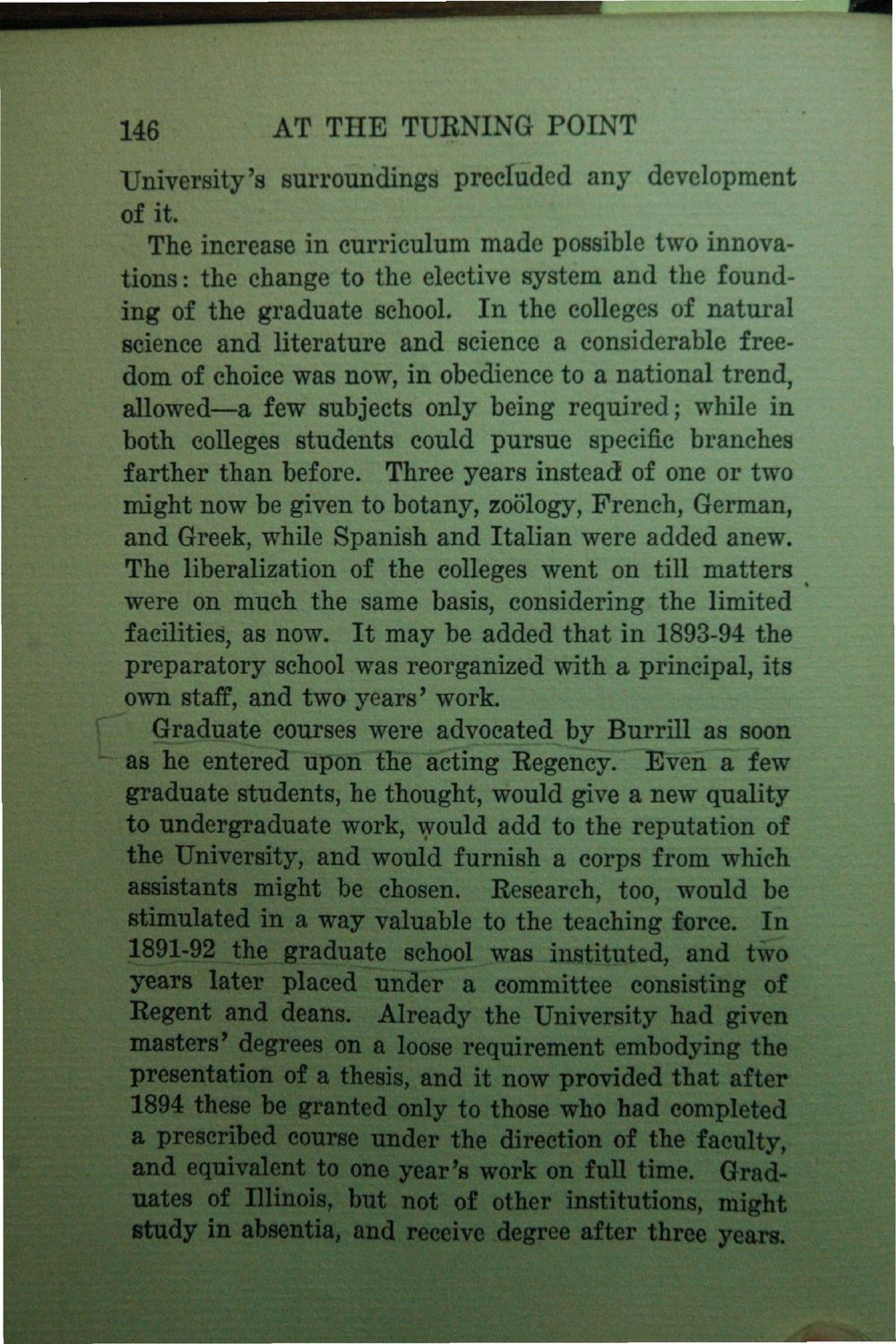| |
| |
Caption: Book - History of the University (Nevins)
This is a reduced-resolution page image for fast online browsing.

EXTRACTED TEXT FROM PAGE:
146 AT THE TURNING POINT University's surroundings precluded any development of it. The increase in curriculum made possible two innovations : the change to the elective system and the founding of the graduate school. In the colleges of natural science and literature and science a considerable freedom of choice was now, in obedience to a national trend, allowed—a few subjects only being required; while in both colleges students could pursue specific branches farther than before. Three years instead of one or two might now be given to botany, zoology, French, German, and Greek, while Spanish and Italian were added anew. The liberalization of the colleges went on till matters were on much the same basis, considering the limited facilities, as now. It may be added that in 1893-94 the preparatory school was reorganized with a principal, its own staff, and two years' work. Graduate courses were advocated by BurrUl as soon as he entered Upon~~fEe acting Regency^ liven a lew graduate students, he thought, would give a new quality to undergraduate work, would add to the reputation of the University, and would furnish a corps from which assistants might be chosen. Research, too, would be stimulated in a way valuable to the teaching force^In 1891:92|.Jhe_graduate school .was instituted, and two years later placed under a committee consisting of Regent and deans. Already the University had given masters' degrees on a loose requirement embodying the presentation of a thesis, and it now provided that after 1894 these be granted only to those who had completed a prescribed course under the direction of the faculty, and equivalent to one year's work on full time. IjBraduates of Illinois, but not of other institutions, might study in absentia, and receive degree after three years.
| |